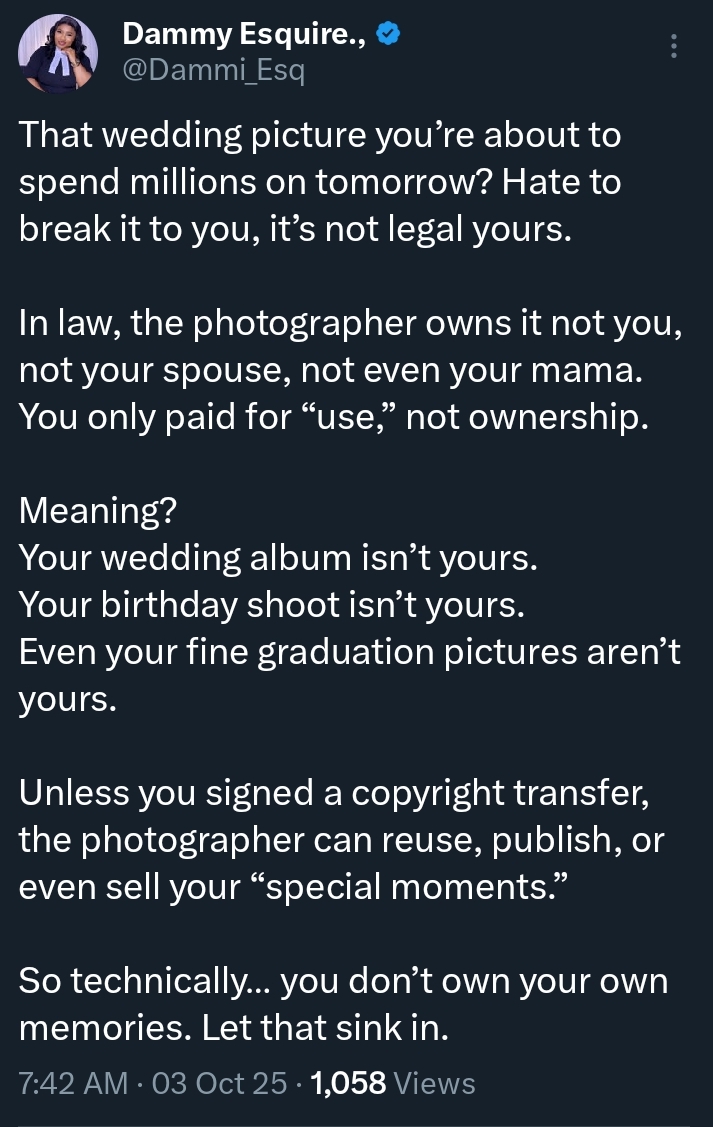A Nigerian legal practitioner, Dammy Esquire, has stirred heated debate on social media after making a bold statement about the legal ownership of photographs.
Photographer owns your pictures
In a post on her official X (formerly Twitter) account, Dammy explained that, under Nigerian copyright law, pictures taken by professional photographers do not belong to the person being photographed but rather to the photographer who took them.
She wrote: “That wedding picture you’re about to spend millions on tomorrow? Hate to break it to you, it’s not legally yours. In law, the photographer owns it – not you, not your spouse, not even your mama.
“You only paid for ‘use,’ not ownership. Meaning? Your wedding album isn’t yours. Your birthday shoot isn’t yours. Even your fine graduation pictures aren’t yours.
“Unless you signed a copyright transfer, the photographer can reuse, publish, or even sell your ‘special moments.’ So technically… you don’t own your own memories. Let that sink in.”

Her post quickly went viral, drawing mixed reactions from Nigerians who expressed shock, disbelief, and, in some cases, agreement.
That’s real definition of borrowed happiness – Public reaction
One X user, KingPaypay, commented: “Imagine paying millions for memories you don’t even legally own… that’s the real definition of borrowed happiness.”
Your payment only covers photographer’s service
Another user, TemiTayo, backed Dammy’s point, saying: “True, your payment usually covers the service and the right to use the photos, but not the copyright itself. Unless there’s a signed agreement transferring those rights, the photographer remains the legal owner, and can decide how the images are used beyond your album.”
Public reaction
The conversation has sparked wider debate about consumer rights, photography contracts, and awareness of intellectual property laws in Nigeria.
Some argue that clients deserve full ownership of pictures they paid heavily for, especially when it involves personal or private events such as weddings, birthdays, or graduation ceremonies.
Others insist that photographers should retain copyright as part of protecting their creative work, unless otherwise agreed.
Legal experts note that copyright law generally grants the photographer ownership of the image as the creator. However, contracts can be drafted to transfer copyright to the client if both parties agree in writing.
Dammy’s revelation has now pushed many Nigerians to reflect on whether they truly “own” their cherished memories, or whether those moments are legally in the hands of the person behind the camera.

